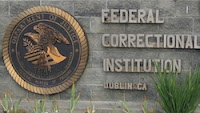Well, it finally happened. I thought I was going to get through the college admissions event known as Varsity Blues—you know, “here’s $2.5 million, please get my child into college”—without having much to say about it, since none of it involves college admissions officers or school counselors.
If that has been lost on you, I’ll say it again. At this point, no college admissions officer has been accused of wrongdoing, and the only school counseling official involved is the one who asked the questions that led to the whole plot unraveling. The entire scandal is the result of outside do-gooders with no background in education, convinced they had a better way to get into college, provided of course that better way involved their making money along the way.
In any case, I was all set to let the rest of the events unfold without notice or comment—but then along came last week, when one of myriad Aunt Beckys was sentenced for her role in this very sad drama. While she pled guilty, Felicity Huffman argued she should get no jail time at all for her illegal behavior, because, at least to her way of thinking, no one really lost anything as a result of her actions. Sure, maybe one student lost a seat at a college or two, but that student likely ended up at college somewhere else. “No harm, no foul” should therefore mean no jail time—right?
A few things came to mind when this interesting defense was offered. First, the notion that her actions were innocent is nonsense. If her behavior didn’t have the potential to harm someone, it wouldn’t be illegal in the first place. Driving 30 in a 25 zone has the potential to hurt a kid dashing out in the street to catch an errant ball, a dog breaking off his leash, or a car backing out of the driveway. You don’t have to hit anything to earn a ticket if you’re going too fast through a neighborhood.
And that’s the second point—Felicity Huffman did a ton of damage in lots of neighborhoods. Think of all those families that school counselors, Michelle Obama, and the Reach Higher program have been talking to, trying to convince low income and first-generation students that college is more than possible. How many of them heard about the million-dollar deal to get a fake tennis player into college and said, Yeah, sure it is.
Do you have any idea how much energy it’s going to take to get them back to the table now, how many future doctors and accountants have lowered their expectations, just because someone of means wasn’t willing to settle for a “lesser” college? How much loss will those shifts to Plan B inflict on our society, and our future?
That’s just the start. There’s always been a number of upper-income parents convinced that college admission is less about hard work and more about finding the right angle. They may not be millionaires, but they have enough spare resources to spend on the “right” overseas community service trip, or the name brand internship experience, that, at least in their minds, will open up doors at America’s most selective schools.
Until Varsity Blues broke, there was a sense that a slew of articles, interviews, and social media posts with counselors and college admissions officials were just starting to get through to this group, helping them understand that the key to an effective college application is for the student to be their authentic self, not some hyped up resume. You think they’re buying that argument now—or are they back to their back-door approach to finding the right “thing” that will make their student stand out?
Felicity Huffman’s argument didn’t exactly win the day in court, since she was sentenced to fourteen days in jail—that’s jail, not prison. Then again, there’s another woman who tried to use her resources to help her kid get into a better school. In this case, it was kindergarten, and the school had an empty place—so it could be said that absolutely no one was hurt by this action. What did this woman get? Five years in prison.



